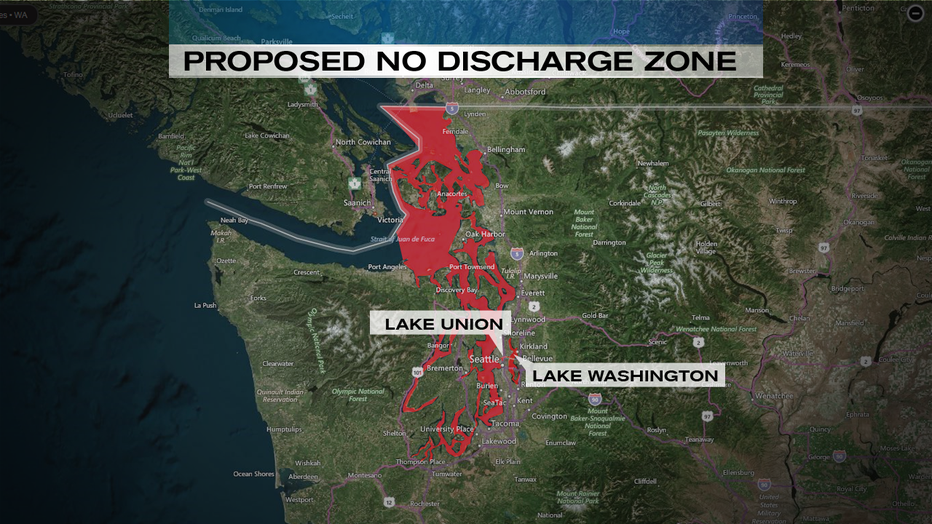What's in the Puget Sound water? Seattle environmental group thinks you should be able to know
SEATTLE -- A legal settlement between the Port of Seattle, operators at Pier 66 and a local environmental group will pave a way forward for cleaner water in Elliott Bay. The plaintiff, Puget Soundkeeper Alliance, says the bigger issue is how we treat our inland waterways. Right now, ships of all shapes and sizes have little regulation or oversight about what they can dump in Puget Sound. The nonprofit watchdog Puget Soundkeeper Alliance says the settlement of the lawsuit is a good step forward but it wants much more to be done. Puget Soundkeeper Alliance shared with Q13 News their video and photographs of what comes in and out of those enormous cruise ships. "The activity is quite frenetic as they as try to outfit these vessels, which are really floating cities," said Chris Wilke, the executive director of Puget Soundkeeper Alliance. The nonprofit's video shows spills on the pier of what they say are oils, solvents and other hazards that wash off Pier 66 untreated into Elliott Bay. Puget Soundkeeper Alliance sued, worried about what all the waste might be doing to our ecosystem. Environmentalists are hoping a recent settlement with the Port of Seattle will put a stop to the contamination. Port of Seattle spokesperson Peter McGraw tells Q13 News, “This settlement puts in writing that they’ll be doing the best management practices moving forward when it comes to environmental compliance.” "Puget Sound belongs to all of us," Wilke said as he stood along the Ship Canal near their Seattle headquarters. He said this issue doesn't end at the dock, but extends out into the open waters, too.
They're one of several organizations pushing for a "no discharge zone" in Puget Sound for all vessels both large and small.
"We don't know what's being discharged from cruise ships," says Wilke. "We don’t know what’s coming out of their gray water versus their black water. They’ve got complex systems and we do need more transparency." He says cruise ships can off-load their gray water, which is dirty water from showers and kitchens and sinks. It can contain toxins and chemicals that, once in the water, can end up in the food chain.
Wilke says currently ships are not well regulated nor required to report what or how much they discharge if they're 3 miles or more from shore. Larry Altos with the Washington State Dept of Ecology says his agency, the Port of Seattle and the Northwest & Canada Cruise Association (which represents the major shipping lines) have an agreement that covers waste water discharges." Altos says the agreement has teeth which can lead to major fines if they uncover a ship's untreated discharges. He says there's sometimes confusion regarding smaller passenger and cruise ships, which are not part of the agreement.
Wilke, with Puget Soundkeeper, says if there was a no-discharge zone there'd be no need for debate or confusion at all. "There would simply be no discharge. There’s something like 80 around the country. And none in the Pacific Northwest, let alone Puget Sound."

Cruise ships do mean big business for Seattle. At least 203 dockings are expected this year. The Port of Seattle estimates cruise ships brought $441 million into the local economy last year and kept more than 3,000 people employed.
But, Puget Soundkeeper Alliance says we don't have to trade jobs for the environment.
"We feel the that should not be allowed to discharge while they’re at port. They should not be able to discharge while they’re at the dock. We don’t feel they should be allowed to discharge within the waters of Washington state."
The Washington State Department of Ecology is currently considering a "no discharge zone" -- something similar to what's in place along the California coast and in the U.S. portion of the Great Lakes.
Department of Ecology spokesperson Sandy Howard tells Q13 News that they've been working on this proposal to present to the U.S. Environmental Protection Agency since February 2014. While their spokesperson wouldn't give an exact date for the completion of their proposal, the department estimates the proposed regulations will be out by the end of this summer.

